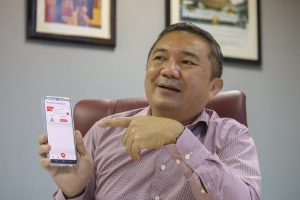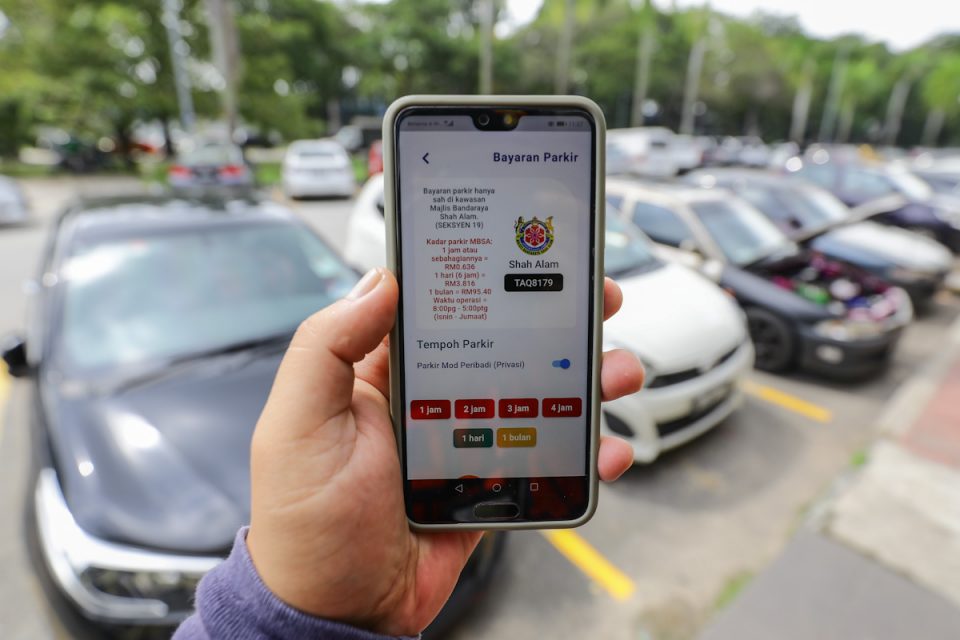By Alang Bendahara
IN slightly more than a month, Selangor will fully achieve its digital parking system dream as scratch and display coupons will no longer be accepted in the Golden State. The Smart Selangor Parking (SSP) app, which makes it all happen, will bring Selangor closer towards its aspiration to become Southeast Asia’s premier smart state by 2025.
The man behind the move, Local Government, Public Transportation and New Village Development Committee chairman Ng Sze Han, had steadfastly nurtured Selangor’s pre-pandemic digitalisation ambitions and pushed the state’s agenda forward when Covid-19 made it almost impossible for in-person interactions to take place.
In an interview with Selangor Journal, Ng said the SSP app continues to record achievements that cement its position as the premier parking app in the country. “From the time it was launched (on July 1, 2018) until February 10, the number of users registered with the digital parking payment system has been increasing, reaching 1.89 million at present.
“Parking payments made through SSP have helped to save approximately 981,159 kg of paper,” he said, adding that based on its sheer number of users, SSP still maintains its position as the most popular parking app in Malaysia.
Comparatively, the councillor had told the media on March 19 last year that 1.5 million users were registered with SSP, and the app had saved 634,994 kg of paper.
The SSP app is now used by 10 local councils covering Shah Alam, Petaling Jaya, Subang Jaya, Klang, Kuala Langat, Ampang Jaya, Kajang, Sepang, Kuala Cashless parking catches on Selangor and Selayang.
“However, it does not cover Sabak Bernam and Hulu Selangor as parking in these two areas is still free,” he said.
Easy to use
On January 3, the state government abolished on-street parking fees using coin machines or the manual coupon system and enforced e-coupons through the SSP app, available on the Apple App Store or Google Play Store.

However, the public is allowed to finish up their supply of scratch-and-display coupons by March 31, after which payment for parking will only be available via the SSP app.
“So far, public reception has been very good. There are maybe two or three complaints as some do not understand how the app works.
“We have explained to them how SSP is much easier to use and saves time even for senior citizens, or those who do not own smartphones or visiting from outside of Selangor, as they can easily get the e-coupons through the appointed agents.”
Ng said that local councils, along with Smart Selangor Delivery Unit (SSDU), the developer of SSP, will also conduct an awareness campaign to encourage more people to download and use the app.
“More people will be invited to become e-coupon agents. Those who are interested can apply through the SSP app and they will get a commission for their service,” he said, adding that convenience store owners are appointed as agents.
As of February 22, a total of 100 convenience store owners have been selected as agents to assist in the smooth implementation of the e-coupons.
Less maintenance
The SSP app has made enforcement work easier as council workers can now scan a vehicle’s plate number to check its parking status.
He said based on a survey, there was an increase of between 30 and 50 per cent in the number of people paying for parking after the SSP app was introduced.
“So it is not that people do not want to pay (for their parking) but they may be discouraged by the hassle as sometimes the coin machines break down or the parking coupons are jammed, or by having to buy separate parking coupons from different local councils,” he said.
By using SSP, local councils can also reduce the cost of running parking lots as they no longer need to appoint contractors to service the parking machines, which cost a lot.
“SSDU fully maintains the app and system, so the local councils only need to ensure that the on-road parking bays are painted every one or two years,” he said.
Enhancing parking
Ng said the big data collected from SSP would be used to enhance Selangor’s parking system by identifying the need to increase parking bays or build multi-level car parks in congested areas.
He said that the data would also help the state enforce the two-hour parking rule in certain city areas, especially at highly sought-after locations like banks.
“This ruling will not cover the whole area but maybe for a certain number of parking lots. When office workers park their vehicles at a certain spot for the whole day, visitors often find it difficult to find empty slots during their short visit,” he said.
He added that many cities have successfully implemented cashless parking, including Kuala Lumpur.
This article first appeared in the Selangor Journal monthly March edition, published on February 28, 2022.





